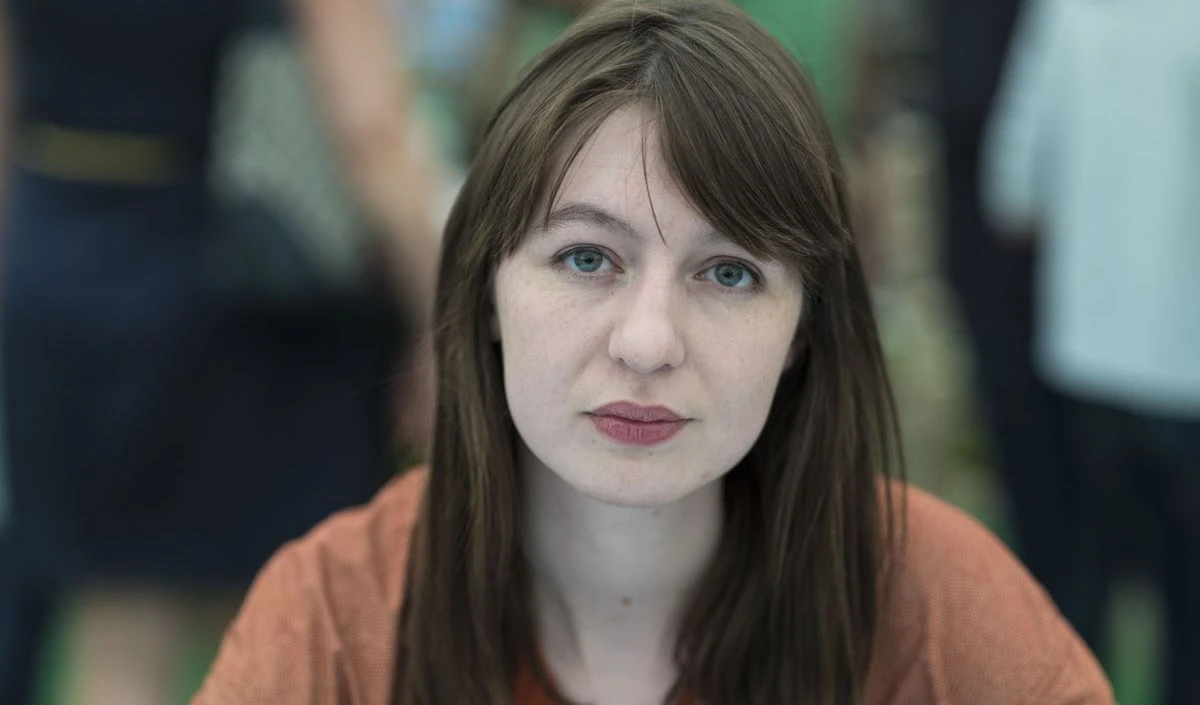Sally Rooney faces legal threats in UK over Palestine Action support
Irish author Sally Rooney may face arrest under the UK's Terrorism Act after pledging to donate royalties from her work to Palestine Action, a group recently banned by the British government.
-

Copies of Irish author Sally Rooney's newly published book 'Intermezzo', are pictured in a book shop in London on September 24, 2024. (BEN STANSALL/AFP via Getty Images)
Irish novelist Sally Rooney may face arrest under the UK's Terrorism Act after publicly pledging to donate royalties from her work to Palestine Action. The statement has prompted legal warnings and renewed debate about free speech and political protest in the UK.
Rooney, author of bestselling novels such as Normal People and Conversations with Friends, wrote in The Irish Times that she intends to use earnings from her books and related media adaptations to support Palestine Action. The group was designated a terrorist organization in early July following a direct action protest at an RAF base in Oxfordshire.
“My books, at least for now, are still published in Britain, and are widely available in bookshops and even supermarkets,” Rooney stated. “I want to be clear that I intend to use these proceeds of my work, as well as my public platform generally, to go on supporting Palestine Action and direct action against genocide in whatever way I can.”
Read more: Leaked UK intel exposes flawed ban on Palestine Action
Legal experts warn of potential arrest and prosecution
Legal professionals have cautioned that Rooney could face serious consequences. Sadakat Kadri, a lawyer and writer, explained to The Guardian that under Section 15 of the Terrorism Act 2000, receiving money with the intention of supporting terrorism constitutes a criminal offence. "That means Rooney could be arrested without a warrant as a ‘terrorist’," Kadri noted.
He also suggested that even expressing support for Palestine Action at public events in the UK, such as book festivals, could place Rooney at risk of prosecution. Kadri described the law as a “shameful attack” on free speech and an example of “gross disproportionality.”
A spokesperson for the British prime minister stated that while they would not comment on Rooney directly, “support for a proscribed organisation is an offence under the Terrorism Act.” The official also emphasized that there is a legal distinction between legitimate protest and active support for banned groups.
According to the Press Association, when asked about donations to Palestine Action, the spokesperson said the police are expected to enforce the law accordingly. More than 700 individuals have reportedly been arrested under the Terrorism Act in connection with Palestine Action since its proscription, including many detained at a peaceful protest on August 9 in Parliament Square, London.
Broader debate on free speech and political protest
The decision to ban Palestine Action and the subsequent warning directed at Sally Rooney have sparked broader discussions about the limits of free expression and protest in the UK. Rooney has previously written in The Guardian defending the actions of Palestine Action activists, stating, "genuine political resistance has always involved intentional law-breaking.”
"Proscribing an entire organisation under the Terrorism Act is not the same thing as prosecuting particular individuals for specific transgressions," Rooney's article in The Guardian read. "If the government follows through with its intention to designate Palestine Action as a terror organisation, mere membership of the group would constitute a crime. In fact, even supporting the group purely in words – as I am doing now – could also constitute a serious legal offence, punishable with a sentence of up to 14 years in prison."
Read more: Palestine Action's Ammori accuses UK ministers of defamation
Legal experts like Mike Schwarz from Hodge Jones & Allen have echoed concerns about the political environment, warning that anyone seen as funding or supporting a proscribed group could face "serious police interest and prosecution," particularly amid heightened sensitivities around support for Palestine.
Rooney’s books remain available in the UK, and the BBC continues to pay residuals for televised adaptations. However, experts warn that these payments themselves could become legally questionable in light of Rooney's stated intentions, placing both authors and broadcasters under potential scrutiny.

 4 Min Read
4 Min Read










